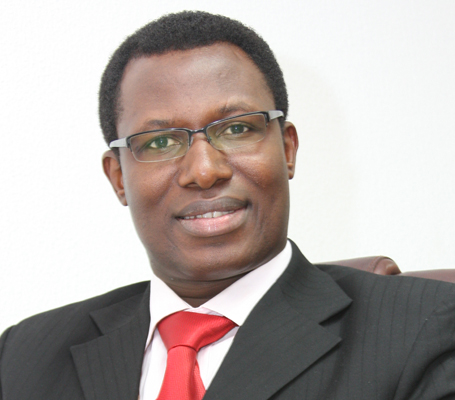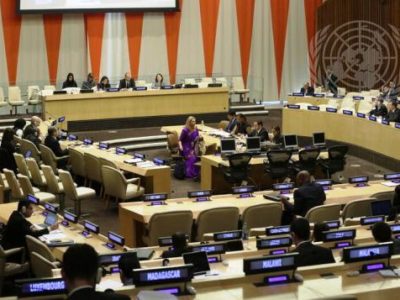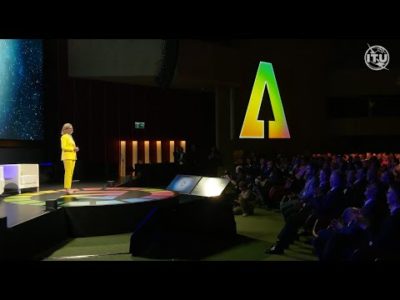By Olusegun Oruame
Gbenga Adebayo, Chairman of the Association of Licensed Telecoms Operators of Nigeria (ALTON), has called on the Nigerian government to take immediate action to allow operators to set appropriate tariffs and implement the Critical National Infrastructure policy. Adebayo emphasized that failure to address these issues could lead to the collapse of the telecom sector.
RELATED: ALTON wants upward tariff review of telecoms services to reflect market realities
Speaking to IT Edge News during an interview session in Lagos, Adebayo highlighted the urgent need for operators to have the flexibility to set tariffs that reflect the current economic climate, particularly in the face of inflation. He stressed that regulating pricing could force operators to subsidize services, jeopardizing the sustainability of their businesses in the long term and deterring potential investors as well as further lowering the quality of service.
ALSO READ: “Time for pending bills on critical national infrastructure to become laws”, says ATCON’s Nnamani
“We must allow the forces of demand and supply to play out. We must allow operators to price right in order to have a sustainable industry. The current pricing regime is not sustainable given the inflationary pressures we face. The government must allow market forces to determine pricing rather than regulating it,” Adebayo stated.
Sector faces stagnation
Adebayo warned that continued government intervention in pricing could lead to stagnation in the telecom sector, hindering investment and innovation. He emphasized the importance of creating an environment that encourages expansion and technological advancement.
“For us to have a sustainable industry, in the face of the challenges that we face, the operators must be allowed to price right. We must have the right tariffs,” he emphasized warning that “If the government continues to touch [pricing] it will come to a point where it will be in stagnation and when that happens, it will impact negatively on the important players you are seeing now and what the big players are seeing in terms of numbers. Who will then come and invest in this economy?”
Adding: “Who will come under the current regime to say that now we want to put another hundred million dollars into the network? Who will do it? So you come to a point where you just leave the network to operate as it is. You don’t do expansion; you don’t do anything. Just keep the lights and the light bulbs on. Don’t do anything other than keep the bulbs on. In a technology industry that is dynamic, you don’t want that to happen. Otherwise, there will be stagnation.”
The energy challenge
Addressing the challenges of running costs, Adebayo cited the high cost of diesel to power cell sites, particularly in light of the energy sector’s inability to meet national energy needs. With over two decades in the industry as an investor and advocate, he said operators running cost has overshot the existing price at which subscribers pay for services.
“The fact remains that the high cost of production is a major factor that we have been dealing with. Considering the number of sites running on diesel fuel and limited alternative energy, the high cost of diesel is no doubt one major factor. Probably the environmental factor that the country is dealing with. We are within the same national economic ecosystem. And so problems confronted by other sectors are also the same as what the telecom industry is facing, but ours is more serious because the cost of input has gone significantly and astronomically high. The sale of services has remained the same.”
Critical National Infrastructure that
He called on the government to protect telecom infrastructure and designate it as Critical National Infrastructure to deter vandalism and ensure its continued operation.
His words; “The government must deliberately do more to protect infrastructure, and that goes again to speak to this issue of Critical National Infrastructure that we have been talking about. Now will that stop vandalism? The answer is no. Will it stop willful damage? Yes, because we will now be mindful that there will be consequences for actions when they happen. So these are basically things that I see at the moment, and there’s a need for stakeholders to begin to look at issues.”
NIN-SIM Linkage as Nigeria’s “societal behavior”
Regarding the NIN-SIM linkage process, Adebayo attributed issues to societal behavior, noting that Nigerians’ carelessness with personal data complicates the registration and validation process. He emphasized the need for citizens to adhere to the registration guidelines to facilitate efficient and effective implementation.
His words: “The issue of NIN SIM is something that’s a bit complicated, to the extent that it has to do with societal behavior. The process is very simple. Go to the NIMC office of the National Identity Management Commission. Go and obtain a NIN number and be registered as a citizen, step number one. Step number two: go to the network operators. If you have had an old number, you are expected to have done SIM registration, meaning that you have registered your name against your SIM card. Bring these, or if you haven’t done that, go to the operator and go and buy a SIM card and register the SIM card. Bring your NIN records to the operators. Operators enter the NIN records in that database. They send your records to the National Identity Management Commission to verify that yes, it is you. And it’s all clear—all good to go.” But Nigerians are notoriously careless with personal data in a way that makes a simple process to become complicated, Adebayo stated.





























